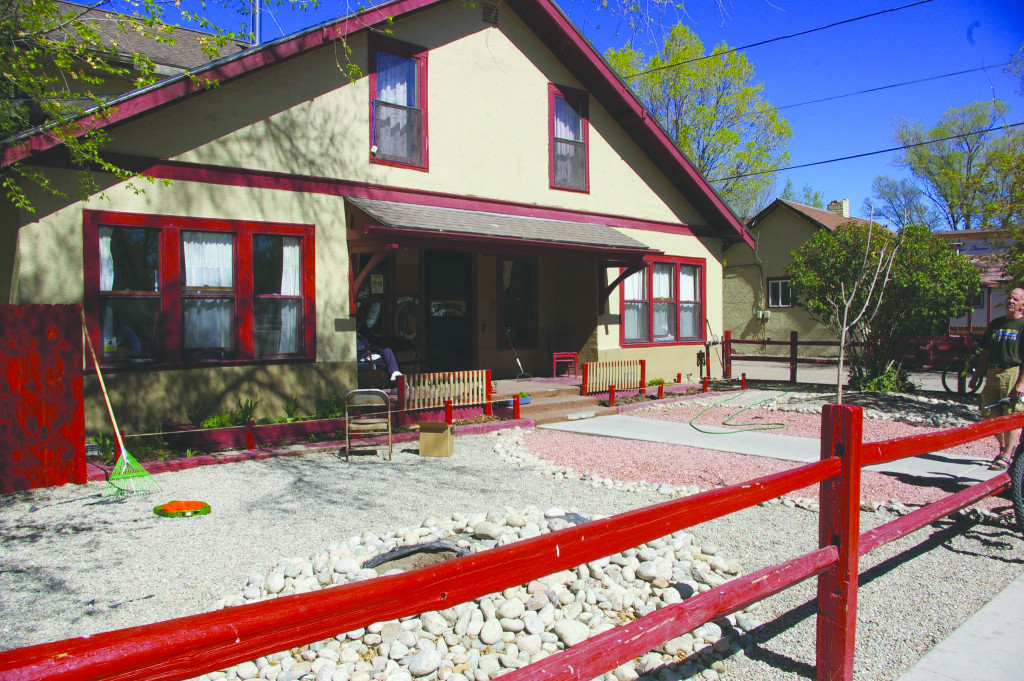Alamosa County commissioners partner with La Puente to address COVID outbreak

ALAMOSA — More than a hundred outbreaks have occurred in the San Luis Valley since the beginning of the pandemic, with the latest one occurring last week at La Puente in Alamosa.
At that time, La Puente was at a “non-COVID” capacity with twenty-five people staying at the shelter and numerous staff in and out of the facility. As of Tuesday, twenty-seven people have tested positive. Twelve of those people are staff. The other fifteen people were staying at the shelter.
“Almost all of our staff are vaccinated, but many of the guests [at La Puente] aren’t,” says Lance Cheslock, La Puente executive director. “We think someone came in who was infected but asymptomatic. That person probably infected other people and…well, it’s the Delta variant. Delta’s very, very contagious.”
Mitigation strategies kicked in immediately. La Puente has stopped taking admissions. Alamosa County Public Health has conducted case investigations, and La Puente staff who were exposed have been quarantined. But isolating those who are sick and staying at La Puente has been a challenge on multiple fronts.
“Public health has been guiding us, and we’re following their directions exactly,” Cheslock says. Bedrooms have been converted into “individual isolation germ bubbles”, with people who are symptomatic staying in the rooms and staff disinfecting common bathroom areas after use.
But in the case of individuals experiencing mental health issues or families with children, Cheslock says that successful isolation in a single bedroom has been a struggle. It exacerbates the stress people are already experiencing, especially unsheltered children, and potentially puts others who are staying at La Puente but are not infected at risk of being exposed to the virus.
In the past, when the pandemic first hit Alamosa and there was a high rate of infection in the community, the City of Alamosa and Alamosa County commissioners partnered with La Puente in taking steps to mitigate. Acting as the fiscal agent, the city applied for a reimbursable federal grant through FEMA to provide non-congregate sheltering at a local facility to reduce the spread of the virus and isolate those individuals who had become infected. It was a successful program. Even though funding was available through the end of November, all parties agreed the non-congregate sheltering could be discontinued.
But, since then, circumstances have changed and the Delta variant has caused a notable increase in cases, including outbreaks like that at La Puente.
Conversations between Cheslock and county officials began earlier this week, resulting in a special commissioners meeting on Wednesday morning to discuss reinstituting the non-congregate program.
Eric Treinen, Alamosa County Emergency Manager; Shanae Diaz, Director of Street Outreach and Director of Volunteer Coordination at La Puente; and Bev Strnad with Alamosa County Public Health were present to brief the commissioners. Kristin Toombs, Director of the Office of Homeless Initiatives with the Department of Local Affairs (DOLA) was available, via Zoom, to answer any questions related to the Emergency Services Grant.
The current need was well defined. Non-congregate housing is needed for quarantining pending test results and isolation for those who are sick, including families, vulnerable individuals with pre-existing conditions, elderly individuals or those people experiencing issues with mental health who do not follow existing mitigation practices at the shelter. Non-congregate sheltering is also for those individuals in the community living with someone who is high risk or especially vulnerable and, having been exposed or become infected, need a place to stay until they no longer put that vulnerable person at risk.
Given how fluid this situation continues to be, it is difficult to predict how long the non-congregate housing might be needed, but that may be pre-determined as the grant funding expires at the end of November.
The question at hand was whether or not the commissioners would agree to act as fiscal agents for the non-congregate program since the city has declined to participate. After being briefed on the situation, assured that 100% of expenses are reimbursable --, including expenses accrued before the grant is approved, and being assured that public health would not be expected to have involvement in providing health services to those staying in the non-congregate facility, the commissioners were unanimous in their agreement. Those who are unsheltered are a part of the community and the county would serve as the fiscal agent for the program.
Meanwhile, La Puente will stay in frequent consultation with Public Health. Staff and guests will continue to practice social distancing, masks and frequent hand sanitizing will be required and symptom screening will be done on all who enter the shelter. Staff will also strongly encourage people staying at the shelter to be vaccinated while recognizing that it is, ultimately, an individual choice.
When informed of the commissioners’ decision, Cheslock said he was “very grateful to be in partnership with the county’. In his words, “COVID isn’t a La Puente problem, it’s a community problem. And I encourage all people to please get vaccinated.”



